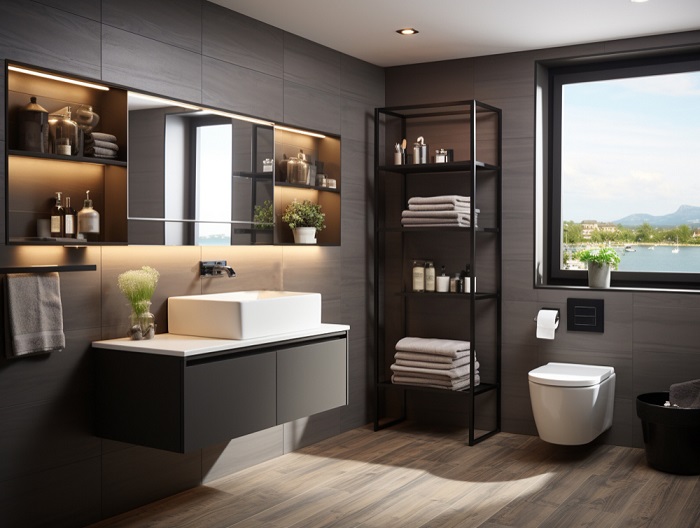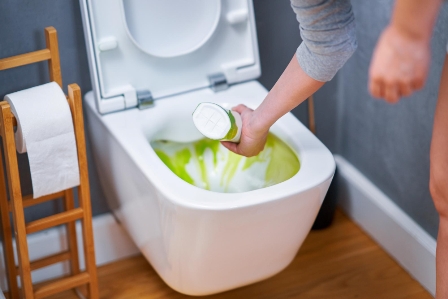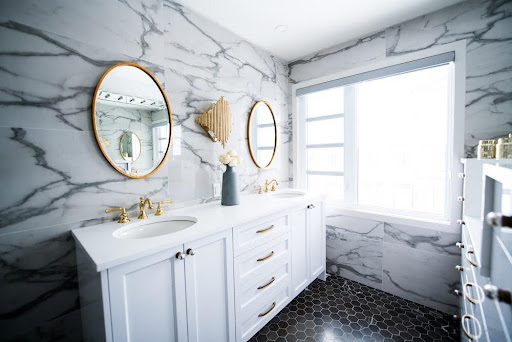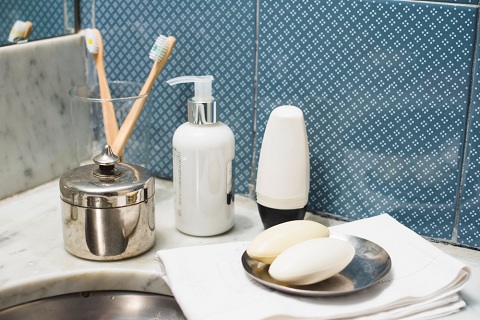Bathroom renovation is often considered one of the most rewarding home improvement projects. A well-designed and updated bathroom not only enhances your daily life but also adds significant value to your home. However, embarking on a bathroom renovation project can be a daunting task, filled with choices, challenges, and potential pitfalls. To help you navigate this journey successfully, we’ve put together “The Ultimate Guide to Bathroom Renovation: What You Need to Know.” Whether you’re a DIY enthusiast or planning to hire professionals, this comprehensive guide will provide you with the knowledge and insights you need to achieve your dream bathroom.
Planning Your Bathroom Renovation
Define Your Goals
Before you start tearing down walls and picking out tiles, take some time to define your renovation goals. Are you looking to increase functionality, enhance aesthetics, or both? Determine your budget, scope, and timeline to set clear objectives.
Create a Design
Consider the layout, style, and color scheme you want for your new bathroom. Look for inspiration in magazines, online resources, and home improvement shows. Sketch out your ideas or work with a professional designer to create a blueprint.
Set a Realistic Budget
Establish a budget that covers all aspects of the renovation, including materials, labor, permits, and unexpected costs. It’s essential to have a financial cushion for unforeseen expenses.
Obtain Necessary Permits
Check with your local building department to determine if permits are required for your project. Failing to obtain the necessary permits can result in costly delays and fines.
Hiring Professionals vs. DIY
DIY Bathroom Renovation
If you have experience in home improvement and the time to spare, you can save money by tackling some aspects of the renovation yourself. However, be realistic about your skills and the complexity of the project.
Hiring Contractors
For larger or more complex renovations, hiring professionals is often the best choice. Look for licensed and insured contractors with a proven track record. Get multiple quotes and check references before making your decision.
Bathroom Renovation Timeline
Project Phases
Understanding the different phases of a bathroom renovation can help you plan your timeline:
- Planning and Design: 1-2 months
- Demolition: 1-3 days
- Rough-In: 1-2 weeks
- Finishes: 2-3 weeks
- Final Inspection: 1-2 days
Considerations
Remember that unexpected delays, such as weather or backordered materials, can impact your timeline. Be prepared for contingencies.
Selecting Materials and Fixtures
Flooring
Choose flooring materials that are water-resistant and easy to clean, such as ceramic tiles, porcelain tiles, or vinyl. Consider underfloor heating for added comfort.
Walls
Opt for moisture-resistant drywall and waterproof paint. Tiles are a popular choice for bathroom walls due to their durability and variety of designs.
Fixtures
Select high-quality fixtures, including toilets, sinks, faucets, and showers. Look for water-efficient options to save on utility bills.
Lighting and Ventilation
Proper lighting and ventilation are crucial for a functional and comfortable bathroom. Install adequate task lighting and a ventilation fan to prevent mold and mildew.
Maximizing Space and Storage
Space Optimization
Make the most of your bathroom’s layout by optimizing storage and ensuring efficient use of space. Consider wall-mounted vanities and shelving to free up floor space.
Storage Solutions
Incorporate storage solutions like recessed medicine cabinets, built-in niches, and floating shelves to keep your bathroom organized and clutter-free.
Plumbing and Electrical Considerations
Plumbing
If your renovation involves moving plumbing fixtures, hire a licensed plumber to ensure proper installation. Address any issues with water pressure or drainage during this phase.
Electrical
Upgrade electrical systems to accommodate modern fixtures and outlets. Ensure all work is up to code, and consider adding GFCI outlets for safety.
Finalizing Your Bathroom Renovation
Inspections and Approvals
Schedule inspections as required by local regulations. This ensures your renovation meets safety and building code standards.
Finishing Touches
Install mirrors, accessories, and any additional decorative elements to complete your bathroom’s look.
Cleaning and Maintenance
Thoroughly clean your new bathroom and establish a maintenance routine to keep it in top condition.
Enjoying Your New Bathroom
Celebrate Your Achievement
Once your bathroom renovation is complete, take the time to enjoy your beautifully upgraded space. You’ve invested time and effort to create a more functional and aesthetically pleasing bathroom.
Regular Maintenance
To prolong the life of your renovation and prevent costly repairs, maintain your bathroom by fixing leaks promptly, cleaning regularly, and resealing grout and caulk as needed.
FAQs
The timeline for a bathroom renovation can vary depending on the scope of the project and any unexpected delays. On average, it can take anywhere from 4 to 8 weeks. More extensive renovations may take longer.
To set your budget, consider factors like materials, labor costs, permits, and potential contingencies. Research the average costs in your area and add a buffer for unexpected expense
Permit requirements vary by location and the extent of your renovation. It’s essential to check with your local building department to determine which permits are necessary. Failure to obtain permits can result in costly delays and fines.
Yes, you can save money by taking on some DIY tasks, such as painting or tiling. However, be realistic about your skills and the complexity of the work. For major plumbing or electrical work, it’s often best to hire professionals.
To make your bathroom more energy-efficient, consider installing water-saving fixtures, LED lighting, and a programmable thermostat for radiant floor heating. Proper insulation and sealing can also help reduce energy consumption.
Conclusion
A bathroom renovation can be a significant undertaking, but with proper planning and execution, it can transform a functional space into a sanctuary of comfort and style. By following the steps outlined in this ultimate guide, you’ll be well-prepared to embark on your bathroom renovation journey and achieve the results you desire. Remember that attention to detail, quality materials, and skilled professionals are key to a successful and rewarding renovation project. Your dream bathroom is within reach; it’s time to make it a reality










Find Us on Socials